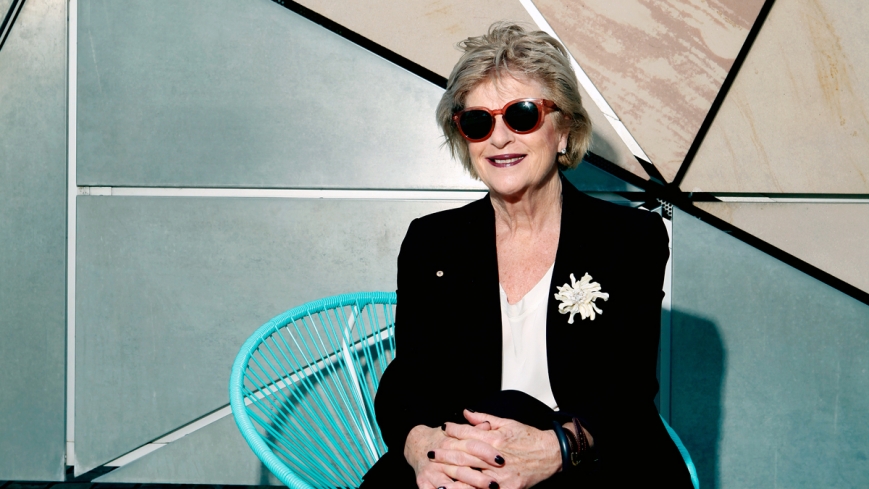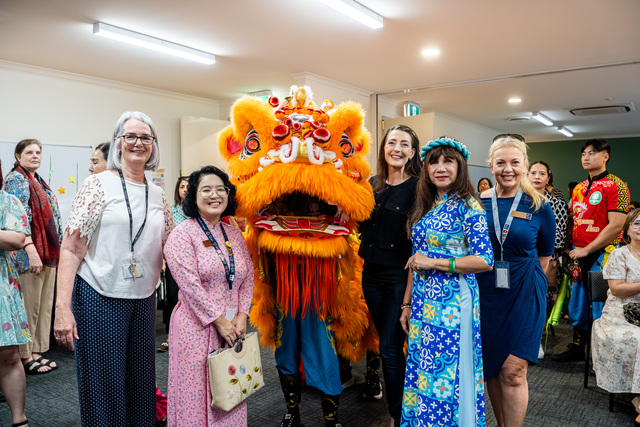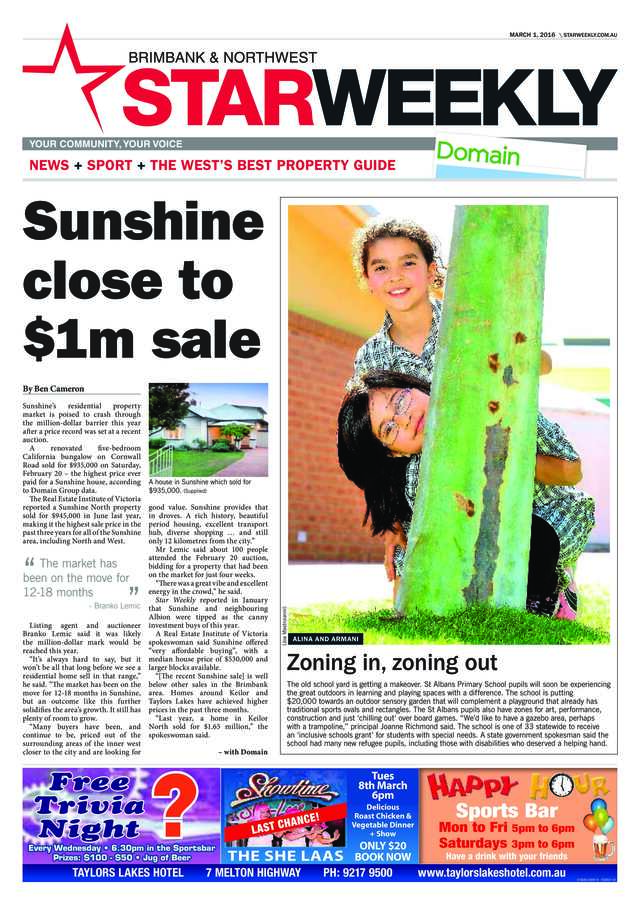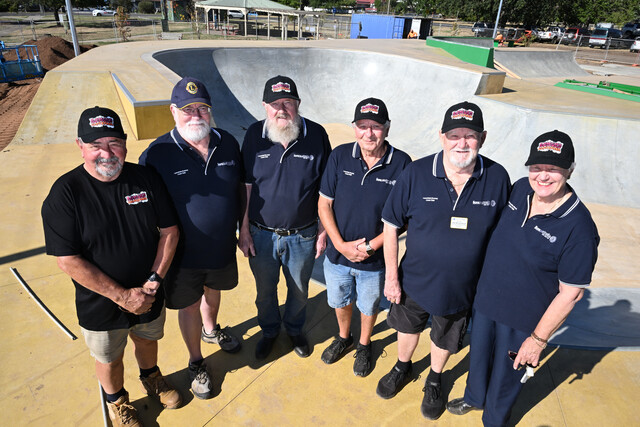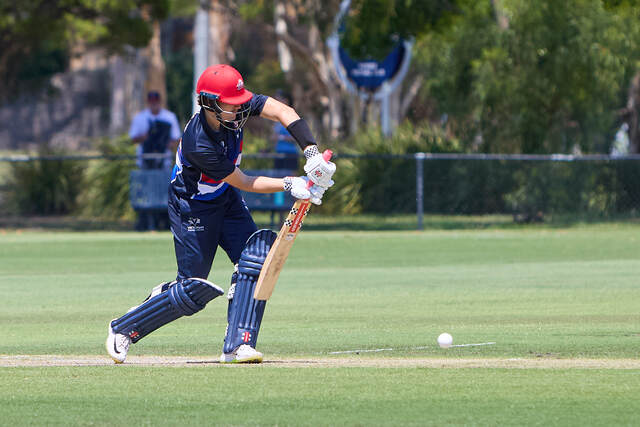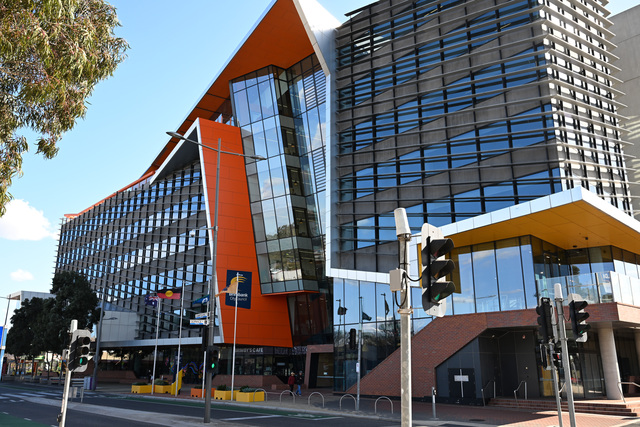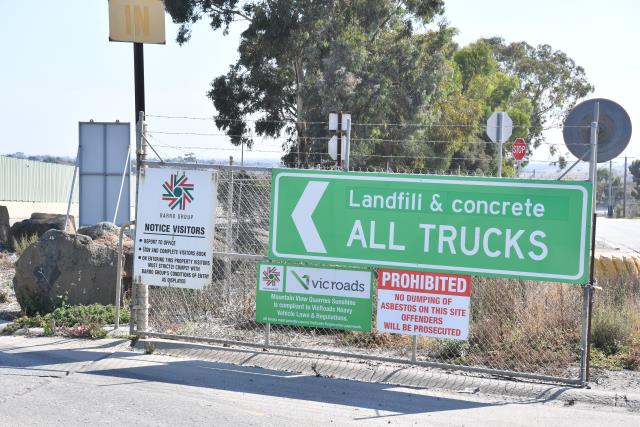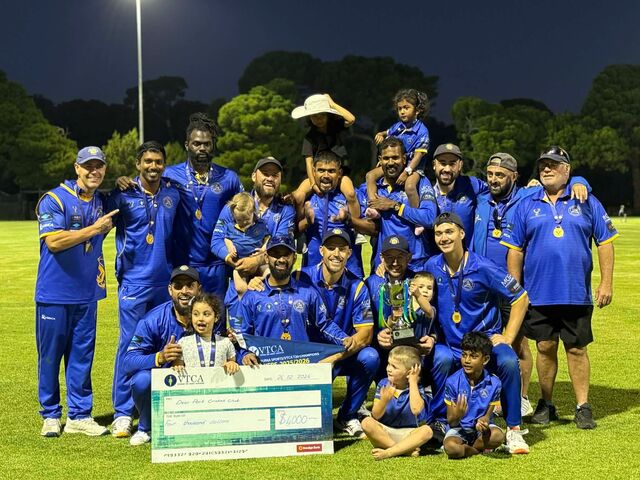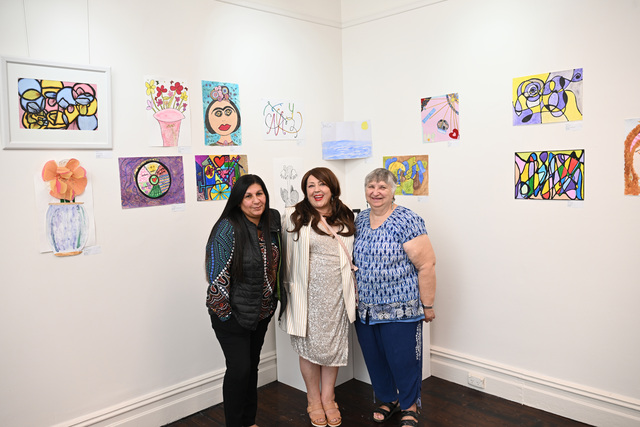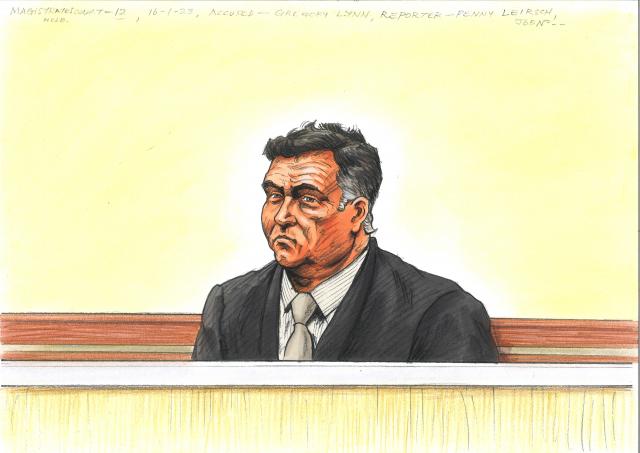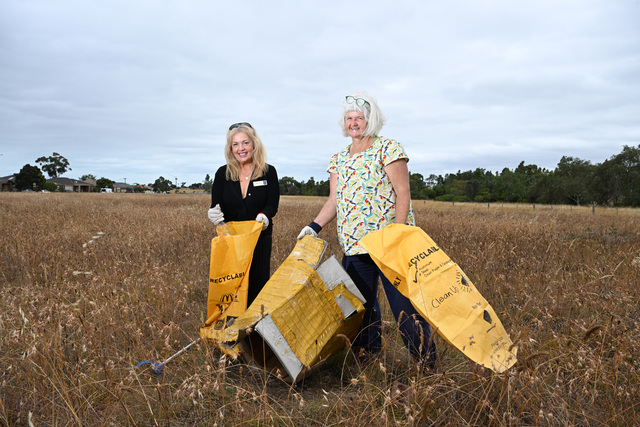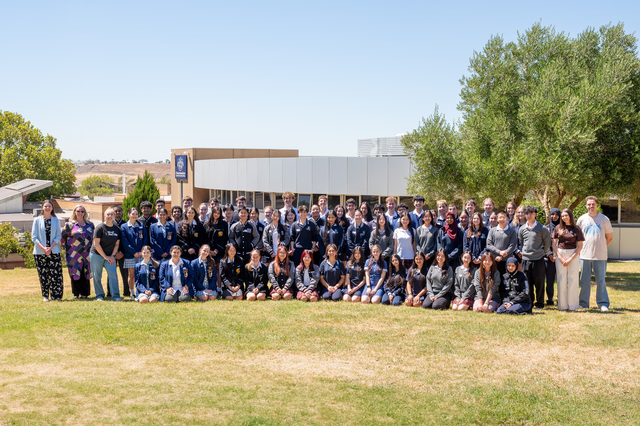In her very stylish Richmond home, Lorraine Elliott is telling some great stories about some fascinating people. One of them is her first husband, John Elliott, to whom she was married for 20 years from 1965 and with whom she has three children, Tom, Caroline and Edward, and six grandchildren.
She met Elliott at Melbourne University just about the time she was voted Miss Freshette 1961. “That has haunted me,” she says, wincing just slightly at the title.
“This is the very early ’60s, pre the feminist revolution. Every year they had this sort of cattle parade of reasonable-looking freshers and they chose a Miss Freshette.”
And, freshly anointed, she met John Elliott. “Tony Staley was president of the Student Representative Council at Melbourne University and I knew Tony slightly. I was wandering around with some friends one day and he said, ‘Are you girls doing anything? Do you want to come and help us get ready for orientation week?’ So we were busy licking envelopes and John Elliott came in the room and I suppose it went on from there.”
What did she think of Elliott when she saw him? “Well, he was an overwhelming force of nature. In some ways he prepared me for working with Jeff Kennett.”
That’s another great name she can talk about. And more on Kennett later. First, we’re here to discuss her new role as president of the screen culture and exhibition organisation Australian Centre for the Moving Image (ACMI), based at Federation Square.
The challenge, she says, is to put on shows that will attract attention. The 2010 show Tim Burton: The Exhibition saw 275,770 visitors at ACMI – it remains their highest-attended show. Last year’s Game Masters, about interactive video games, attracted 102,803 visitors. This year’s Hollywood Costume exhibition lured 205,000 visitors.
“I’m very interested in the creative side of what ACMI does,” says Elliott. “ACMI is probably the least understood of the major arts agencies. People know what the Gallery does, what the Arts Centre and the Museum do. ACMI is, for a lot of people, a harder concept to grasp. When you say the moving image it means different things to different people. For my demographic it probably means television and movies. To the current generation it’s a far more complex, fluid concept. For me, intellectually, it’s quite a challenge.”
Lorraine Elliott, 70, grew up in Burwood and went to Ashburton Primary, then Camberwell Girls Grammar. “You look back and think you had an idyllic childhood but I remember thinking, ‘I’m not going to live here when I grow up’. It was quite … not rural, but there were lots of empty blocks and I felt I wanted to be closer to the action.”
Her grandfather had been the “hall porter” at the Menzies Hotel in the city. “I remember him telling me that when Anna Pavlova came to town he had to feed Pavlova’s caged birds,” she says.
Her grandfather’s stories awakened young Lorraine to the world of the arts, but it was the books her father brought home that sparked her love of reading. “My father was a travelling book salesman for a while and he would bring home books that were damaged or remaindered and he’d give them to me. It did instil in me a lifelong love of reading.”
But sadly the performing arts remained something for Elliott to witness, rather than to do herself. “I have no voice, I can’t sing, I can’t dance, can’t paint or draw.” she says. “Is that a source of regret? “Oh, absolutely. Had I been able to be Judi Dench or Helen Mirren or Cate Blanchett, I would have. I really love theatre.”
Instead she taught English and history at Blackburn High for two years before falling pregnant with Tom.But years later, after her divorce from John Elliott, she became a politician for 10 years, from 1992 to 2002, which must have involved a little bit of acting skill. “That’s what everyone said.” She smiles. “It was a different type of acting.”
As member for the electorate of Mooroolbark and parliamentary secretary for the arts, Elliott was part of the Kennett revolution. What was it like working with Jeff Kennett? “Interesting,” she says. “He had that ability as a leader to make you want to do the best you could for him. He could be a harsh critic.”
Did she ever feel the pace of change by the Kennett government was too much? “I knew the pace of change was huge because one of my dominant memories of when I was a very new MP was the workers and unionists massing in the streets,” she says. “We looked out the windows of Parliament House and there were demonstrators as far as the eye could see. But when I look back now, Jeff and his team had done the work for transition to government and they had a very clear idea of where they wanted to go, and I think in retrospect a lot of people grudgingly admit he was a good premier.
“You do feel uneasy because as a local member you do get the backlash sometimes in the electorate office. I remember when there was the $100 levy to pay for the Cain/Kirner debt, that caused a huge backlash in Croydon and Mooroolbark, who resented it bitterly. You feel the impact very directly, the postcard torrents that came through the mail, people storming into the office saying they weren’t going to pay it.”
Her memories of the Kennett government’s fall in 1999 are vivid. The government was favourite to win, but there were signs of arrogance, including a now-infamous interview Kennett did with ABC presenter Jon Faine just before the election in which Kennett said, after protracted questioning from Faine, that he would just sit there and drink his tea.
“It’s interesting you talk about the Jon Faine interview because I was out door-knocking,” Elliott says. “A lot of people weren’t home and I had my radio with me and I heard that interview, and I remember feeling just devastated. I thought, ‘Oh, crumbs, why did he say that?’ I thought, ‘That’s probably not the best thing to say in the circumstances when we were in an election campaign’. It’s not the way to go. But there’s so much good to balance those sorts of things.
“When we lost the election it was devastating. It was two terms when there was such great vision. It wasn’t long enough to implement it properly. It was shocking actually to have lost.”
Elliott has been married to journalist John Kiely since 1996. They met when Kiely’s sister, Doreen Stockdale – the former wife of the one-time state treasurer Alan Stockdale – invited her to lunch with him. They’ve been married 17 years. “It’s been terrific,” Elliott says. “John’s been an enormous support. Whatever I’ve decided I’m going to do, he says, ‘Fine’.”
She says Kiely’s career as a journalist and hers as a parliamentarian mean they have “quite complementary backgrounds and skills”.
She keeps in touch with John Elliott and says they’ve had family Christmases together for the past two years. “We’re good friends. He came to my 70th birthday drinks party at Royal South Yarra Tennis Club.”
And the difference between the first and second marriage? “John Kiely’s always home,” she says. John Elliott was away a lot on business. Did that mean greater pressure on bringing up the children? “Yes, it was a bit when they were young, but I got used to it.”
In January, their son Tom Elliott took over Derryn Hinch’s drive spot on radio 3AW. “I listen to him when I can but mostly I’m involved in other things,” she says. “I think he’s quite good, but I’m so close to him that I can’t really be objective. Sometimes I wonder why he wants to do that when he was very successful in his other job. He likes it.”
John, the conservative father, and Tom, the more progressive son, have made an amusing double act, including appearing together on the ABC’s Agony Uncles. It was amusing because they come from different places. “Yes,” Elliott says. “John’s very much a product of his time. And Tom is, too. And John has never rethought his views on things.”
He doesn’t trouble himself too much to revisit his ideologies? “No, not at all. I don’t think John is particularly reflective. Tom’s reflective. He’s always holding you to account. You can’t make a chance comment without him asking you to justify it.
“He is actually quite sensitive. He is absolutely loving being a father and being married to Elise. He got married late. He adores [daughter] Ava. He cares very deeply for the people who surround him. And he does take the time to listen to people who call in.”
Elliott has six grandchildren, which she finds enjoyable, if exhausting. “Yes, it can be quite tiring. They are all still very young. I have babysat one on Thursdays for several years now, my elder grandson. Now I mind my granddaughter on Thursdays.”
Thursday is “grandmother day”.
“Henry’s nearly eight now but I look back on my time with him with great pleasure. And from things he says, he remembers those days.
“My granddaughter is four and she never pauses in asking questions. We went to a pantomime yesterday, The Frog Prince. She was scared of the wicked stepmother. I’m trying to introduce them to the arts. I’ve just signed them up as members of the National Gallery.”
Elliott has been on the board of St Vincent’s Hospital for seven years and is involved with the Dame Nellie Melba Opera Trust, which provides programs for promising young opera singers. She has also served as a board member with the Australian Children’s Television Foundation.
She enjoys walking around her beloved Richmond, where she has lived for 20 years. As a girl and young woman, she had been a Brownie, a Guide and a Ranger, and for five years in the 1980s, when looking after her children at home in Canterbury, she was the leader of a Brownie pack in the high-rise flats in Richmond.
The Brownies – 12 girls aged between eight and 11 – were mainly Cambodian and Vietnamese refugees, she says. “The Guide movement decided they should be doing something for the refugee children and so they asked me if I’d be prepared to set up a pack. We started in Blackburn and moved to Richmond.
“That was a terrific time. The girls were really interesting. There were a few Turkish girls but mainly refugees from the Vietnam War.
“I had to wear a uniform,” she says. This caused some amusement among John Elliott’s Carlton Football Club mates. “[Former footballer] Wes Lofts once said he’d give me anything I wanted if he could just see me in my Guides uniform.”
Elliott never knew what she wanted to do with her professional life. “Some people have this driving vision about what they wanted to be,” she says. “It didn’t happen to me. But when I did teaching I really loved it.”
She ends with a charming story. “The first day I went to Parliament as a new member I went into the parliamentary library and there was a pile of newspapers so I took one. And this voice said, ‘I’ll give you a detention for that’. It was the chief librarian and he’d been in my grade 5 English class at Blackburn.”

